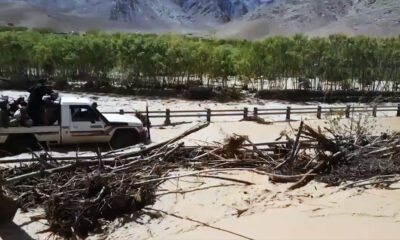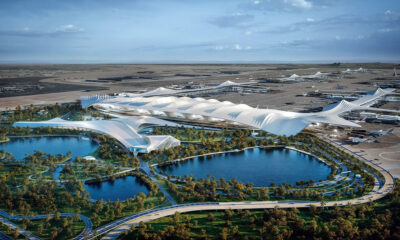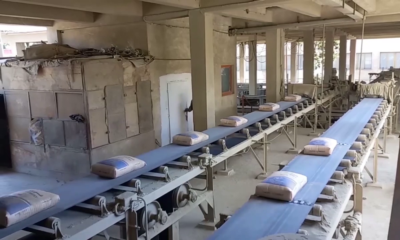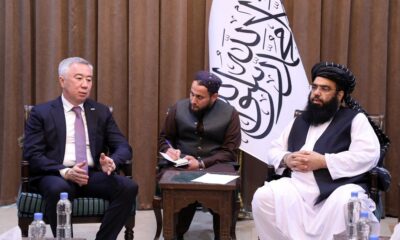Latest News
IEA sets up independent agency for regulation of state-owned companies
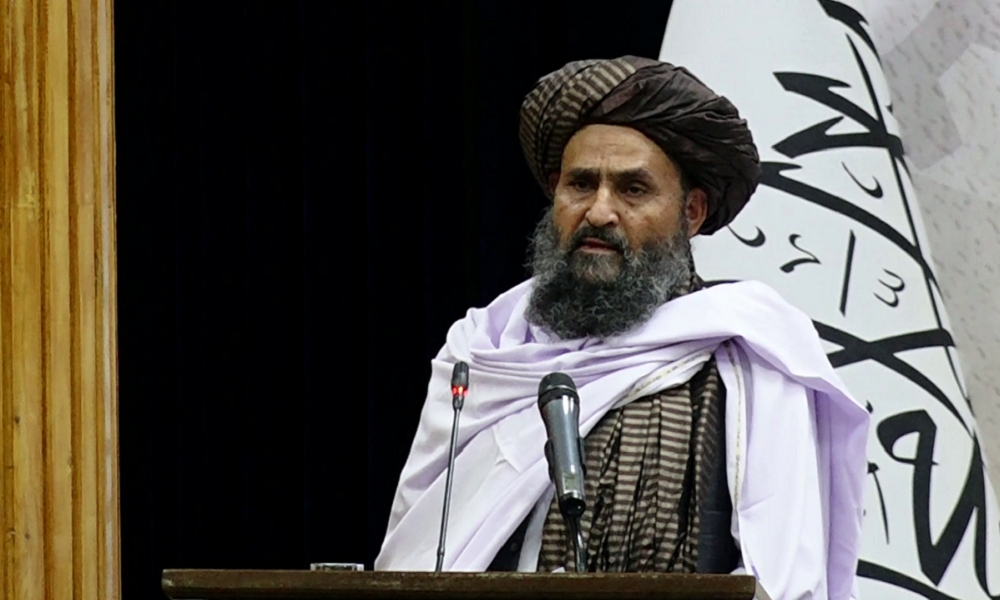
The Deputy Prime Minister for Economic Affairs Mullah Abdul Ghani Baradar addressed a gathering focused on the establishment of an independent agency aimed at enhancing the strength and integration of state-owned corporations, the deputy prime minister office said in a statement.
Baradar said this decision aligns with the decree of the Islamic Emirates’ supreme leader, aiming to improve the management of state-owned corporations, boost national revenues, and prevent monopolies.
Baradar emphasized the significance of establishing this institution and said: “Government corporations in Afghanistan were highly effective a few decades ago, contributing up to 60 percent of the national budget. Their services surpassed those of the private sector, handling tasks with professionalism and strength that the private sector might have struggled with. Unfortunately, over the past 40 years, along with other parts of Afghanistan, government corporations faced challenges that were seldom discussed.”
He hailed the creation of an independent agency for state-owned corporations as a key achievement, clarifying that all government corporations will now operate under a single agency for improved efficiency and positive outcomes.
In this meeting, Abdul Latif Nazari, deputy economy minister also said that the IEA is trying to bring Afghanistan to economic self-sufficiency by implementing large infrastructure projects.
Nazari added that the coordination of companies under a single and independent umbrella is an important principle for national interests, growth and economic development of the country.
Meanwhile, a number of participants said that the establishment of an independent agency will lead to healthy competition between companies and the ground for attracting investment.
In the last four decades, many government companies were either destroyed or their equipment was plundered due to the war and conflicts in the country.
Latest News
Eight dead in rain across Afghanistan over past four days

Mullah Janan Saiq, the spokesperson of the Ministry of Natural Disasters, says that eight people have died, three people have been injured and 20 hectares of agricultural land have been destroyed as a result of the rains and floods in the past four days.
Saiq also said that as a result of the recent rains in the country, 140 houses were damaged or destroyed and 20 kilometers of roads were also destroyed across the country.
According to him, 30 cows were also lost.
“Fortunately, as a result of the recent rains, the water level in the country has increased, the underground water has been strengthened and the farmers are happy,”
he said.
According to him, the Ministry of Natural Disasters has directed its directorates in the provinces to use all their facilities to help the victims.
Latest News
Ghori State Cement in Baghlan increases production
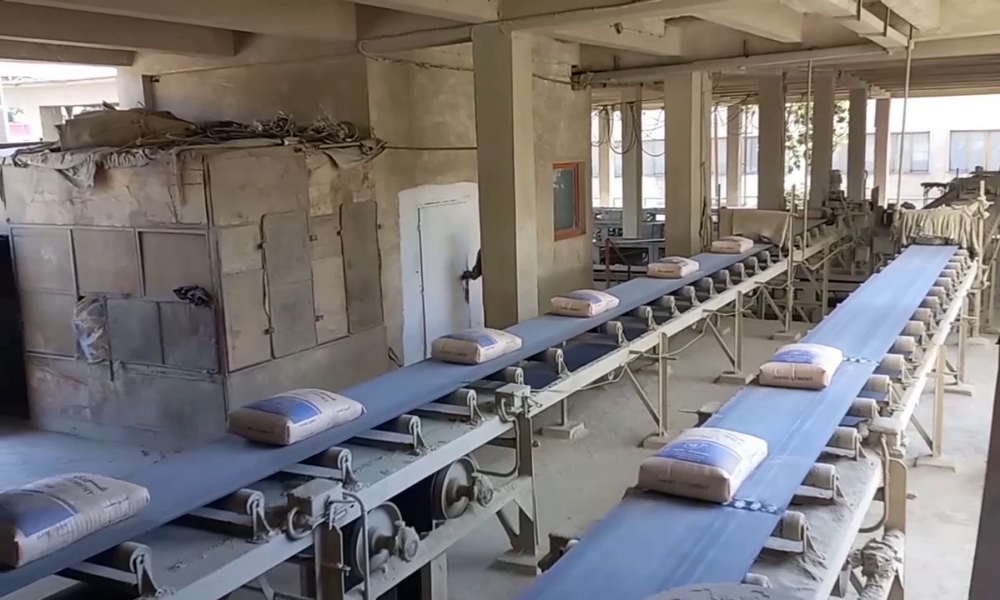
Officials at Ghori State Cement in Baghlan province say the amount of cement produced at this plant has increased compared to the past.
According to company officials, 150,000 tons of cement was produced in 1402 [solar year] and they are trying to increase the amount to 180,000 tons this year.
“Last year, we successfully produced 150,000 tons of cement and sold it to the market. Fortunately, in 1402, we had more than 200 million afghanis in revenue,” said Abdul Wakil Qayumi, financial and administrative deputy of the company.
The plant officials stated that efforts are underway to increase the production capacity, and with the increase of the production capacity, they will produce 1000 bags of cement per day.
“Currently, our four ovens are active, and we produce approximately 1,000 to 1,200 tons of cement in twenty-four hours,” said Mohammad Tahir, packaging manager for the company.
In this company, jobs are created for 750 individuals, and some workers have asked the traders to invest in the country and provide work for young people.
“Some more factories should be built in our country so that less foreign cement is imported into the country and we use our own products,” said one of the company workers.
Ghori Baghlan Cement Company was established about 40 years ago and is considered one of the largest cement production companies in Afghanistan.
The management of this company is carried out by the National Development Corporation (NDC).
Latest News
Regional countries should jointly expand stability and development: Deputy PM
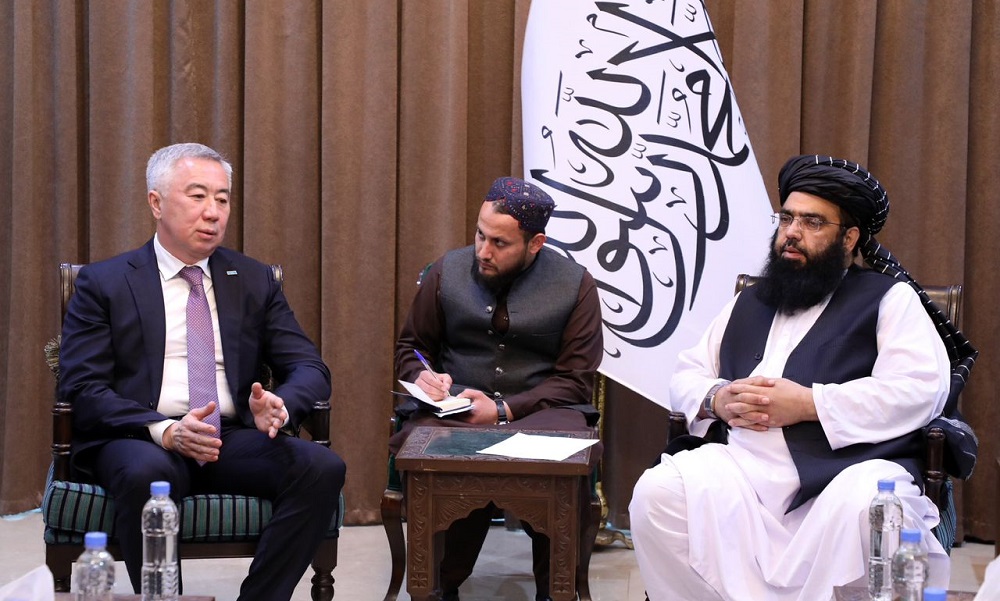
Mawlawi Abdul Kabir, Political Deputy Prime Minister, has said in a meeting with the Deputy Prime Minister of Kazakhstan in Kabul that regional countries should play their role in the implementation of large regional projects.
Kabir also invited Kazakh businessmen to invest in Afghanistan, his office said in a statement.
He added that the Islamic Emirate fully controls Afghanistan’s borders, has eliminated drugs and corruption, and restored national sovereignty.
According to the statement, Deputy Prime Minister of Kazakhstan Serik Zhumangarin appreciated the progress made by the Islamic Emirate in Afghanistan and said that his country is ready for long-term trade, transit and investment relations with Afghanistan.
Zhumangarin expressed his country’s readiness to grant scholarships to Afghan youth and added that Afghanistan is currently an example of a peaceful country in the region, and due to this, the world wants to establish relations with the Islamic Emirate in various fields.
He also called for the start of direct flights between Kabul and Almaty and said that his country is ready for bilateral cooperation with the Afghan government in the cultural field.
-

 Sport5 days ago
Sport5 days ago‘Serious talent’ Fraser-McGurk bonds with Warner to light up IPL
-

 Latest News5 days ago
Latest News5 days agoOver 1,000 Afghan refugees forced out of Pakistan in one day
-

 Sport3 days ago
Sport3 days agoAfghanistan beat Iraq 5-3, inch closer to Futsal World Cup berth
-

 Regional3 days ago
Regional3 days agoNew UK sanctions target Iranian drone industry
-

 Regional4 days ago
Regional4 days agoTurkey accuses U.S. of double standards over Gaza in rights report
-

 Latest News3 days ago
Latest News3 days agoEU allocates 17 million euros to support Afghans on the move
-

 Latest News2 days ago
Latest News2 days agoPakistan extends registered Afghan refugees’ stay till June 30
-

 World4 days ago
World4 days agoUS student protests over Gaza intensify despite arrests


